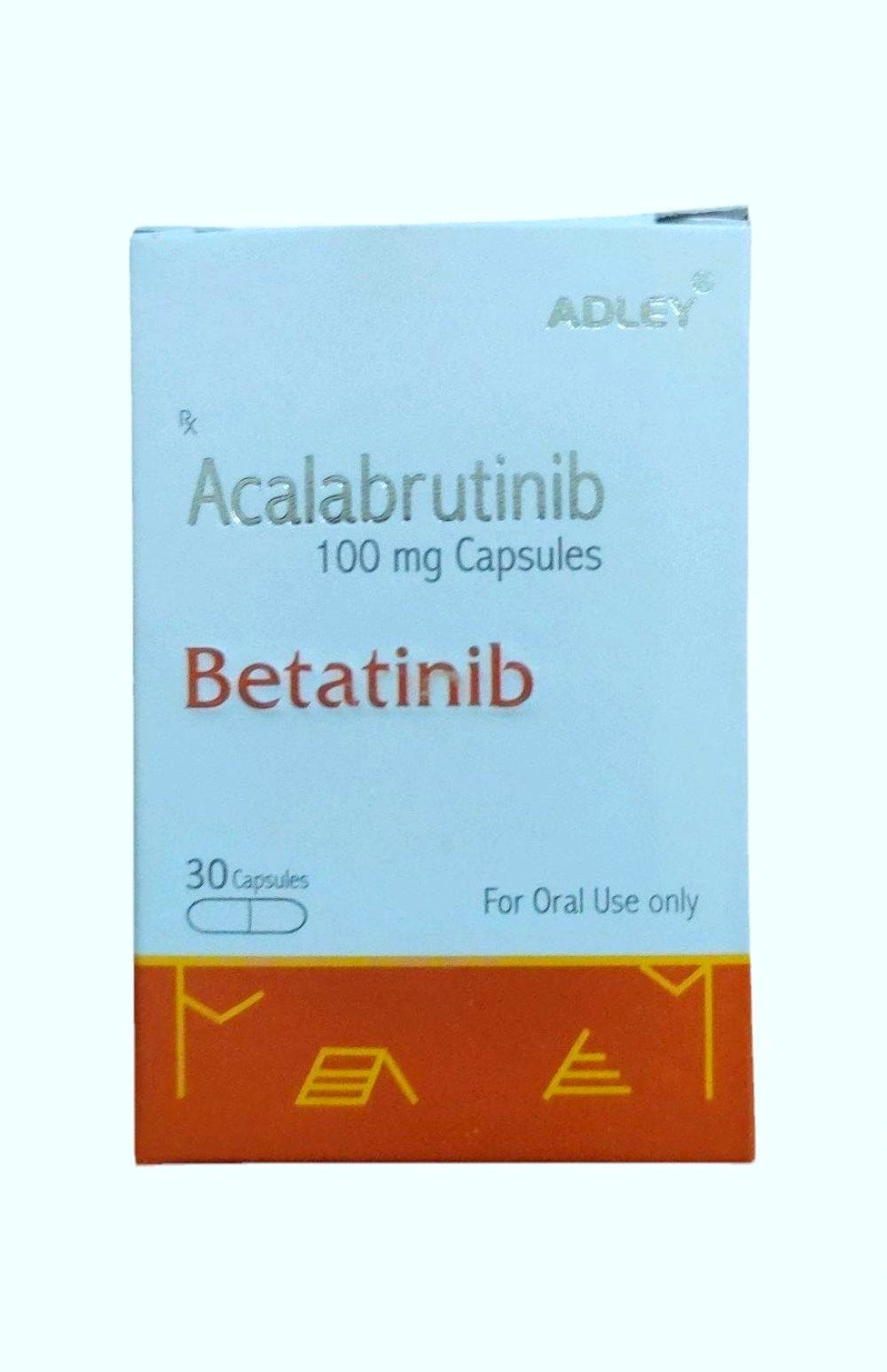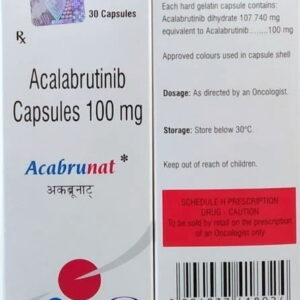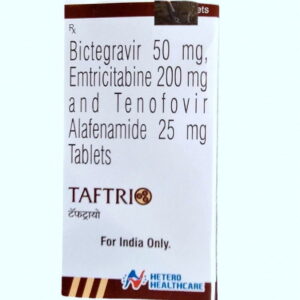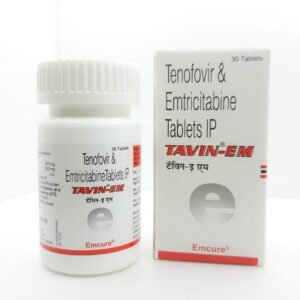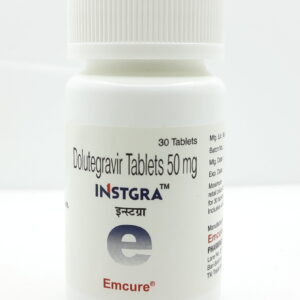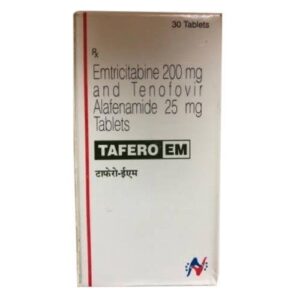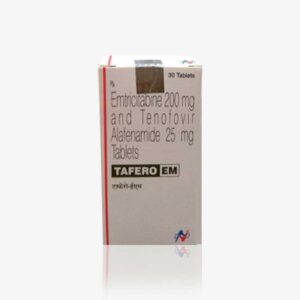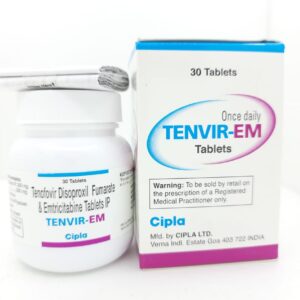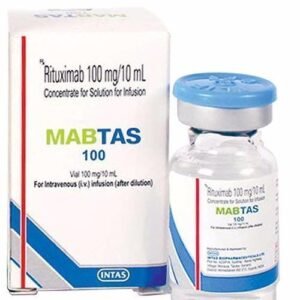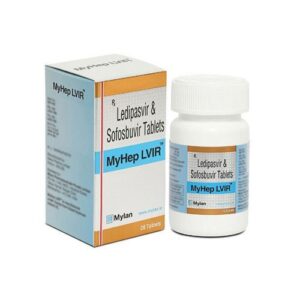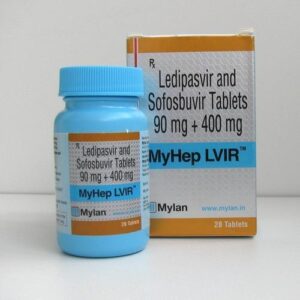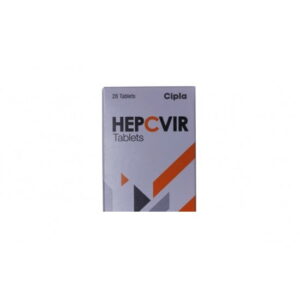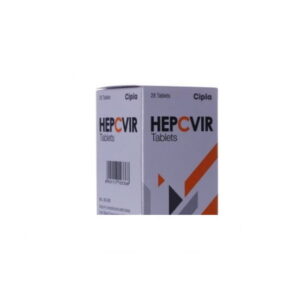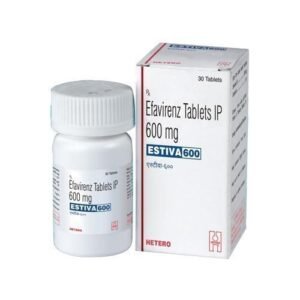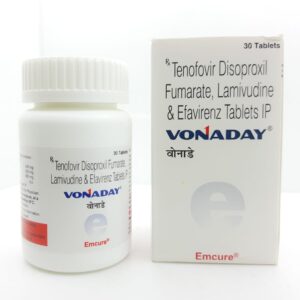Last Updated on August 3, 2024 by admin
Introduction to Betatinib 100mg Capsules
Betatinib 100mg capsules, widely known by the brand name Calquence, represent a significant advancement in cancer treatment. Classified as a Bruton tyrosine kinase (BTK) inhibitor, Betatinib 100mg is primarily utilized in the management of specific types of cancer, notably chronic lymphocytic leukemia (CLL) and mantle cell lymphoma (MCL). These cancers impact the lymphatic system, leading to abnormal growth of white blood cells that can compromise the body’s ability to fight infections.
As a BTK inhibitor, Betatinib 100mg works by blocking the activity of the Bruton tyrosine kinase enzyme, which plays a crucial role in the proliferation and survival of cancer cells. By inhibiting this enzyme, Betatinib 100mg disrupts the signaling pathways that promote the growth and survival of malignant cells, thereby aiding in the reduction of cancer cell numbers and limiting disease progression.
The clinical efficacy of Betatinib 100mg has been demonstrated through various studies and trials, showcasing its potential to improve patient outcomes when traditional treatment options may be insufficient. Patients prescribed with Betatinib 100mg capsules typically take them orally, with dosage and administration schedules tailored to individual medical needs and conditions.
Understanding the mechanisms and applications of Betatinib 100mg is essential for healthcare providers and patients alike. This medication not only offers hope for those battling certain types of cancer but also exemplifies the ongoing advancements in targeted cancer therapies. By focusing on specific molecular targets such as BTK, Betatinib 100mg contributes to a more personalized approach in oncology, potentially leading to improved survival rates and quality of life for patients.
Uses of Betatinib 100mg Capsule
Mechanism of Action
Betatinib 100mg, an innovative therapeutic agent, operates as a highly selective Bruton’s tyrosine kinase (BTK) inhibitor. Understanding the mechanism of action of Betatinib 100mg is crucial to appreciate its role in treating specific cancers, particularly B-cell malignancies. BTK is an essential enzyme in the B-cell receptor signaling pathway, which is instrumental in the development, differentiation, and proliferation of B-cells. B-cells are a type of white blood cell that plays a pivotal role in the immune response. However, aberrant activation of B-cells can lead to various malignancies, including chronic lymphocytic leukemia (CLL) and mantle cell lymphoma (MCL).
BTK is a non-receptor tyrosine kinase that, upon activation, triggers a cascade of downstream signaling events, ultimately leading to B-cell activation and proliferation. In normal conditions, this process is tightly regulated. However, in certain cancers, this pathway becomes dysregulated, contributing to the uncontrolled growth and survival of malignant B-cells. By inhibiting BTK, Betatinib 100mg effectively disrupts this signaling cascade, thereby reducing B-cell proliferation and inducing apoptosis, or programmed cell death, in cancerous cells.
The specificity of Betatinib 100mg for BTK is a notable feature, minimizing off-target effects and potentially reducing the incidence of adverse reactions compared to less selective BTK inhibitors. This targeted inhibition ensures that Betatinib 100mg can efficiently interfere with the overactive signaling pathways in malignant B-cells while preserving the function of other kinases that are vital for normal cellular processes.
Through its action as a BTK inhibitor, Betatinib 100mg has shown significant efficacy in clinical trials, offering a promising therapeutic option for patients with CLL and MCL. By halting the progression of these cancers at the molecular level, Betatinib 100mg contributes to better disease management and improved patient outcomes.
Safety Advices for Betatinib 100mg Capsule

Pregnancy
Betatinib 100mg Capsule is unsafe during pregnancy. It can harm the developing fetus, so pregnancy should be avoided while taking this medicine.

Breast Feeding
It is unknown whether Betatinib 100mg Capsule is excreted into human breast milk, so breastfeeding women should consult a doctor before taking it.

Lungs
If you have a lung disease or lung cancer and are considering treatment with Betatinib 100mg Capsule, it is important to discuss this medication’s potential benefits and risks with your healthcare provider.

Liver
Betatinib 100mg Capsule can affect the liver, elevating liver enzymes (AST, ALT) in some patients taking it. In rare cases, severe liver injury or failure has been reported.

Alcohol
Patients taking Betatinib 100mg Capsules avoid or limit their alcohol consumption, as alcohol can exacerbate certain side effects of the medication, such as fatigue and depression.

Driving
Patients should always monitor their response to the Betatinib 100mg Capsule medication and be cautious when driving or operating machinery if they experience any side effects that may impair their ability to do so safely.

Kidney
Approved Uses and Indications
Betatinib 100mg capsules are a targeted therapy specifically designed for the treatment of several types of blood cancers. Primarily, Betatinib 100mg is approved for the management of chronic lymphocytic leukemia (CLL) and small lymphocytic lymphoma (SLL). Both CLL and SLL are types of non-Hodgkin lymphoma, characterized by the slow proliferation of lymphocytes, a type of white blood cell. By inhibiting Bruton’s tyrosine kinase (BTK), Betatinib 100mg interferes with the signaling pathways necessary for the survival and proliferation of these malignant cells.
In addition to CLL and SLL, Betatinib 100mg has also been approved for the treatment of mantle cell lymphoma (MCL), another aggressive type of non-Hodgkin lymphoma. MCL is marked by the abnormal growth of B lymphocytes, and similar to CLL and SLL, Betatinib 100mg’s action on BTK helps to halt the progression of this disease, providing patients with a viable treatment option.
Beyond its approved uses, Betatinib 100mg is sometimes utilized off-label for other types of cancers. Off-label use refers to the application of a medication for an indication that has not received official approval by regulatory bodies. Such uses are typically based on emerging clinical evidence and are often considered when standard treatments have proven ineffective. For instance, there are ongoing studies and anecdotal evidence suggesting the potential efficacy of Betatinib 100mg in treating other hematologic malignancies such as Waldenström’s macroglobulinemia and diffuse large B-cell lymphoma. However, these applications require further validation through rigorous clinical trials.
In clinical practice, Betatinib 100mg is administered orally in capsule form, typically in combination with other therapies or as a monotherapy depending on the specific cancer type and patient’s health condition. The precise dosage and treatment regimen are determined by healthcare providers based on individual patient factors, including disease stage and overall treatment goals.
Dosage and Administration
Betatinib 100mg capsules are prescribed with a specific dosage regimen that is vital for achieving optimal therapeutic outcomes. The standard starting dose for Betatinib 100mg capsules is typically 100 mg, taken twice daily. It is essential to maintain a consistent schedule when taking these capsules to ensure steady levels of the medication in the bloodstream. Patients are advised to swallow the capsules whole with water and avoid chewing or crushing them.
Betatinib 100mg capsules can be taken with or without food, depending on the patient’s preference or tolerance. However, it is crucial to follow the healthcare provider’s instructions regarding meal timing to avoid any potential interactions that could affect the medication’s absorption or efficacy. Adhering to the prescribed schedule is paramount, as missed doses can compromise the treatment’s effectiveness.
In the event of a missed dose, patients should take the missed dose as soon as they remember. If it is almost time for the next scheduled dose, they should skip the missed dose and proceed with the next one at the regular time. Doubling up on doses to make up for the missed one is not recommended, as this could increase the risk of adverse effects.
Adjustments to the dosage of Betatinib 100mg capsules may be necessary based on individual patient cases. Factors such as the patient’s response to treatment, the presence of side effects, and other medical conditions may require modifications. Therefore, it is imperative that patients maintain open communication with their healthcare provider to report any concerns or side effects promptly.
Special instructions may also be given to patients with specific health conditions or those taking concomitant medications that could interact with Betatinib 100mg. Following these guidelines helps ensure the medication is used safely and effectively. The regular monitoring of blood counts and other relevant health parameters is often necessary to tailor the treatment to the patient’s needs.
Side Effects and Management
Betatinib 100mg capsules, like many medications, can cause side effects. Understanding these side effects and how to manage them is crucial for patients undergoing treatment. Common side effects of Betatinib 100mg include headache, diarrhea, and muscle pain. These symptoms are generally manageable but can impact daily activities. If headaches occur frequently, over-the-counter pain relievers may provide relief, though it is advisable to consult with a healthcare provider before taking any additional medications. Staying hydrated and maintaining a balanced diet can help manage diarrhea, while gentle exercise and adequate rest may alleviate muscle pain.
More serious side effects, though less common, may occur. These include signs of infections, such as fever, chills, and persistent cough, which require immediate medical attention. Patients may also experience heart-related issues, such as irregular heartbeat or chest pain, and symptoms of liver problems, indicated by jaundice or severe abdominal pain. It is essential to be aware of these risk factors and monitor for any unusual symptoms. Promptly contacting a healthcare provider can prevent complications and ensure timely intervention.
In managing side effects, communication with healthcare providers is vital. Patients should report any adverse reactions to their medical team, who can offer guidance on mitigating these effects. Adjusting the dosage of Betatinib 100mg or incorporating supportive therapies might be necessary based on the severity of side effects. Additionally, patients are encouraged to report adverse reactions to the FDA’s MedWatch program to contribute to the ongoing evaluation of the medication’s safety.
Effective management of side effects not only enhances the quality of life for patients but also supports the overall success of the treatment. By staying informed and proactive, patients can navigate the challenges associated with Betatinib 100mg capsules more effectively.
Precautions and Contraindications
When considering the use of Betatinib 100mg capsules for treatment, several precautions must be adhered to ensure patient safety and efficacy of the medication. Primarily, it is crucial to be aware of any known hypersensitivity to Betatinib 100mg or any of its components. Patients with such hypersensitivity should avoid the drug to prevent severe allergic reactions.
One significant precaution involves potential interactions with other medications. Betatinib 100mg can interact with a variety of drugs, including those metabolized by the liver enzyme CYP3A. Medications such as antifungals, certain antibiotics, and drugs used to treat HIV may alter the metabolism of Betatinib 100mg, leading to either increased toxicity or decreased efficacy. It is critical for patients to inform their healthcare providers about all prescription and over-the-counter medications, as well as any herbal supplements they are taking. This transparency helps healthcare providers to make informed decisions and adjust dosages or suggest alternative treatments as necessary to avoid adverse interactions.
Additionally, patients with a history of bleeding disorders or those currently taking anticoagulant or antiplatelet drugs should exercise caution. Betatinib 100mg may increase the risk of bleeding, necessitating close monitoring by healthcare professionals. Similarly, patients with a history of cardiovascular disease should be closely monitored due to the potential for arrhythmias and hypertension associated with Betatinib 100mg use.
Another critical consideration is for patients undergoing surgery or invasive procedures. It is advisable to temporarily discontinue Betatinib 100mg before and after such procedures to reduce the risk of bleeding complications. Patients should discuss the timing of discontinuation with their healthcare provider to ensure safety while maintaining therapeutic efficacy.
For those who are pregnant or planning to become pregnant, it is important to note that Betatinib 100mg may pose risks to the developing fetus. Effective contraception should be used during treatment and for a specified period after the last dose. Breastfeeding mothers should also consult their healthcare provider, as it is unknown whether Betatinib 100mg is excreted in human milk.
By adhering to these precautions and contraindications, patients can help optimize the benefits of Betatinib 100mg while minimizing potential risks. Thorough communication with healthcare providers is paramount to ensure safe and effective use of this medication.
Clinical Trials and Research
Betatinib 100mg, a Bruton’s tyrosine kinase (BTK) inhibitor, has undergone extensive clinical trials to ascertain its efficacy and safety in treating various hematologic malignancies. One of the pivotal studies, the ELEVATE-TN trial, focused on patients with previously untreated chronic lymphocytic leukemia (CLL). This trial demonstrated that Betatinib 100mg, either alone or in combination with obinutuzumab, significantly prolonged progression-free survival compared to chlorambucil plus obinutuzumab. These findings underscore Betatinib 100mg’s potential as a first-line therapy for CLL.
Another noteworthy study, the ASCEND trial, compared Betatinib 100mg to a combination of rituximab and idelalisib or bendamustine in patients with relapsed or refractory CLL. The results revealed that Betatinib 100mg significantly improved progression-free survival, highlighting its promise as a treatment for patients with previously treated CLL. Additionally, the ACE-LY-004 trial explored Betatinib 100mg’s effectiveness in relapsed or refractory mantle cell lymphoma (MCL), showing notable overall response rates, which led to its accelerated approval by the U.S. Food and Drug Administration (FDA).
Ongoing research continues to explore Betatinib 100mg’s potential in other therapeutic areas. Current studies are investigating its use in combination with other agents to enhance its efficacy and broaden its application. For instance, trials are examining the synergistic effects of Betatinib 100mg with venetoclax or anti-PD-1 antibodies in various lymphomas and leukemias. These studies aim to unravel new treatment paradigms, potentially offering patients more effective and comprehensive care options.
Recent developments have also shed light on Betatinib 100mg’s role beyond oncology. Preliminary research suggests its potential in treating autoimmune diseases, given its mechanism of action on the BTK pathway. Such breakthroughs could pave the way for novel therapeutic strategies, significantly impacting patient care in diverse medical fields.
In conclusion, the wealth of clinical trials and ongoing research underscores Betatinib 100mg’s significance in the treatment landscape of hematologic malignancies and beyond. Its evolving role promises to enhance patient outcomes and expand therapeutic possibilities, marking a significant milestone in modern medicine.
Patient Stories and Experiences
In the world of oncology, Betatinib 100mg has emerged as a significant therapeutic option, particularly for patients with certain types of blood cancers. The real-world experiences of patients can provide invaluable insights into how this medication impacts lives beyond clinical trials. One such patient, John, was diagnosed with chronic lymphocytic leukemia (CLL) and faced daunting prospects with conventional therapies. After discussing options with his oncologist, John began treatment with Betatinib 100mg capsules. Over the ensuing months, he reported a notable reduction in symptoms and improved quality of life. While he experienced mild side effects such as headaches and muscle pain, these were manageable and outweighed by the benefits of the treatment.
Another patient, Maria, shared her journey through a support group. Diagnosed with mantle cell lymphoma (MCL), Maria was initially apprehensive about starting a new medication. However, her experience with Betatinib 100mg was largely positive. She noted that her energy levels increased, and she was able to maintain her daily activities with minimal disruptions. Maria did face some challenges, such as occasional gastrointestinal discomfort, but found these side effects to be transitory and less severe than those she had encountered with previous treatments.
Yet, not all patient stories are without hurdles. Tom, who also has CLL, experienced more pronounced side effects, including fatigue and infections. Despite these challenges, Tom’s overall response to Betatinib 100mg was favorable, and he appreciated the continuous support from his healthcare team in managing these adverse effects. His story highlights the importance of individualized care and open communication between patients and providers.
These patient stories underscore the diverse experiences and outcomes associated with Betatinib 100mg treatment. While the medication offers substantial benefits for many, it is crucial to recognize and address the challenges some patients may face. By sharing these personal narratives, we can foster a deeper understanding of Betatinib 100mg’s impact and support those navigating their own treatment journeys.
FAQ – Betatinib 100mg Capsule
Q: What is Betatinib 100mg capsule used for?
A: Betatinib 100mg capsule is primarily used to treat certain types of cancers, such as mantle cell lymphoma or chronic lymphocytic leukemia.
Q: When is the best time to take Betatinib 100mg capsule?
A: It is recommended to take Betatinib 100mg capsule at the same time each day, either with or without food as directed by your healthcare provider.
Q: What are the long-term side effects of Betatinib 100mg capsule?
A: Long-term side effects of Betatinib may include increased risk of infections, bleeding problems, and potential heart issues. It is important to discuss any concerns with your healthcare provider.
Q: Can you provide a review of Betatinib 100mg capsule?
A: Reviews of Betatinib may vary from person to person. It is recommended to consult with your healthcare provider for personalized information based on your specific health condition.
Q: What are the common uses of Betatinib 100mg capsule?
A: Common uses of Betatinib 100mg capsule include treating specific types of cancer, particularly mantle cell lymphoma and chronic lymphocytic leukemia.
Q: What is the recommended dosage of Betatinib 100mg capsule?
A: The recommended dosage of Betatinib 100mg capsule is typically determined by your healthcare provider based on your individual condition and needs. It is important to follow their instructions carefully.
Q: Is Betatinib 100mg capsule safe to use?
A: Betatinib 100mg can be safe and effective when used as prescribed by a healthcare professional. However, like any medication, it may have potential side effects or interactions. Consult your healthcare provider for personalized
References:
- AstraZeneca, Electronica medicines compendium (EMC), [Revised on Dec 2020], [ Accessed on 5th May 2023], https://www.medicines.org.uk/emc/files/pil.11917.pdf
- AstraZeneca, US Food and Drug Administration, [ Revised on Oct 2017], [ Accessed on 5th May 2023], https://www.accessdata.fda.gov/drugsatfda_docs/label/2017/210259s000lbl.pdf
- John C Byrd et al; Acalabrutinib monotherapy in patients with relapsed/refractory chronic lymphocytic leukemia: updated phase 2 results; Blood; Published on April 2020; [Accessed on5th May 2023]; https://pubmed.ncbi.nlm.nih.gov/31876911/

